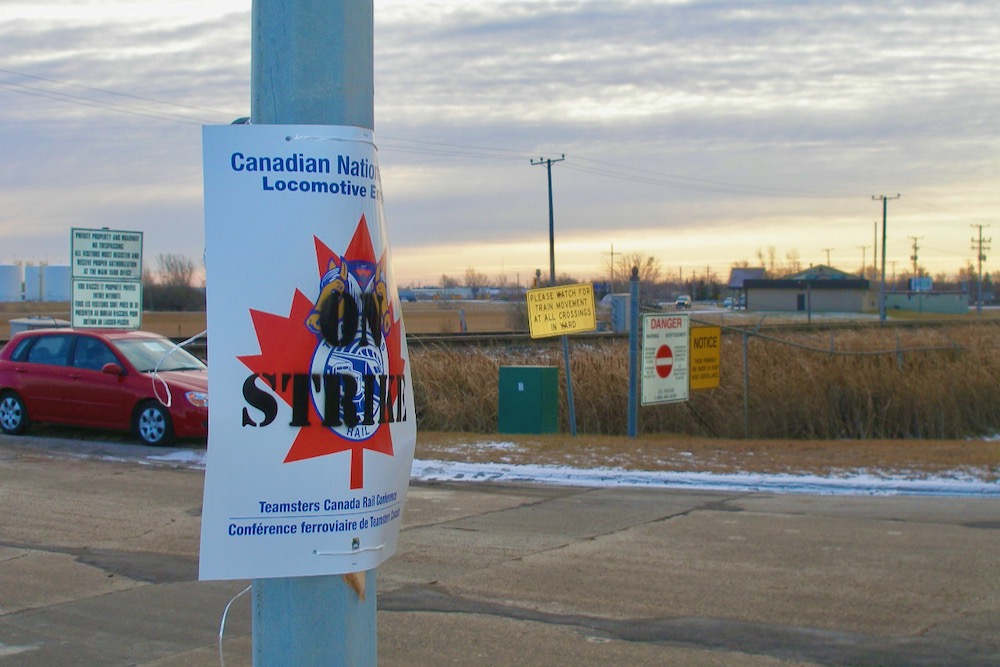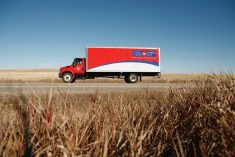Glacier FarmMedia — Workers at Canada’s two major railways could be on strike or locked out as early as Aug. 22, following a decision by the Canada Industrial Relations Board (CIRB) issued Aug. 9 on the safety implications of a stoppage.
Following a request in May from the federal government for such a review, the CIRB has now ruled a strike or lockout would not result in a serious threat to public health and safety under the Canada Labour Code, and that rail service was not “essential.”
“Today, the Canada Industrial Relations Board ruled that no activities need to be maintained in the event of a strike or lockout at CN or CPKC,” Labour Minister Steven MacKinnon said in a statement posted to social media.
Read Also

India likely to triple lentil import duty
Analysts anticipate India hiking duties to 30 per cent after March 31 to bolster domestic prices on expectation of strong harvest.
“The CIRB has also imposed a 13-day cooling off period before a strike or lockout can occur,” MacKinnon added, as he called on the parties “to stay at the bargaining table.”
The Teamsters Canada Rail Conference, which represents close to 10,000 workers at Canadian National Railway (CN) and Canadian Pacific Kansas City (CPKC), agreed with the ruling and said in a statement that they “will provide 72 hours advance notice in the event of any strike action.”
“Workers’ right to strike had been temporarily suspended pending today’s decision by the CIRB,” the Teamsters said, adding “this effectively robbed the union of leverage. Absent the threat of a work stoppage, neither company had been willing to compromise or show any flexibility in their demands.”
CN and CPKC, in separate statements Aug. 9, each said they will issue lockout notices to the Teamsters as of 12:01 a.m. ET on Aug. 22 — that is, barring any “immediate and meaningful progress at the negotiating table or binding arbitration,” as CN said.
Both railways said they will phase in progressive embargoes on rail traffic before those lockouts take effect.
Railways can impose embargoes in cases where temporary “physical or operational impairment,” or threats of same, put “sensitive and dangerous goods” at risk of being stranded on rail lines, CN said.
CN also said it’s now “formally requesting” that MacKinnon intervene, citing Section 107 of the Labour Code.
Section 107 refers to the minister’s powers to act to “maintain or secure industrial peace and to promote conditions favourable to the settlement of industrial disputes or differences” and to direct the CIRB to act accordingly.
A possible work stoppage comes just as newly harvested Canadian grain will be looking to move to export positions. Grain Growers of Canada (GGC) on Aug. 9 issued a statement urging for a swift resolution to the potential rail disruption.
“With the start of the harvest season, it is critical that grain farmers continue to be able to market their grain to support their livelihoods, uphold Canada’s trade reputation, and address both domestic and international food demand,” the GGC said.
“Producers in Manitoba are beginning to harvest and will be increasing the frequency of deliveries to elevators in the coming weeks,” Brenna Mahoney, general manager for Keystone Agricultural Producers, said in a separate release.
“A strike at this time of the year is inconvenient, frustrating, and damages Canada’s reputation as a supplier of reliable, high-quality agricultural product.”
The Canadian Manufacturers and Exporters (CME) added “a national rail stoppage of any length will have a catastrophic impact on Canadian manufacturers and their workers.” The CME called emergency meetings of the Commons standing committee on transportation to study the impacts of a stoppage.
The union and railways agreed last week to restart contract talks with the aid of a government mediator. The Teamsters, in a notice Aug. 9 to local chairs, said its bargaining committee is “continuing to negotiate into the weekend.”
The main sticking points in negotiations are concessions on issues pertaining to crew scheduling, rail safety, and fatigue management, according to the Teamsters.
















